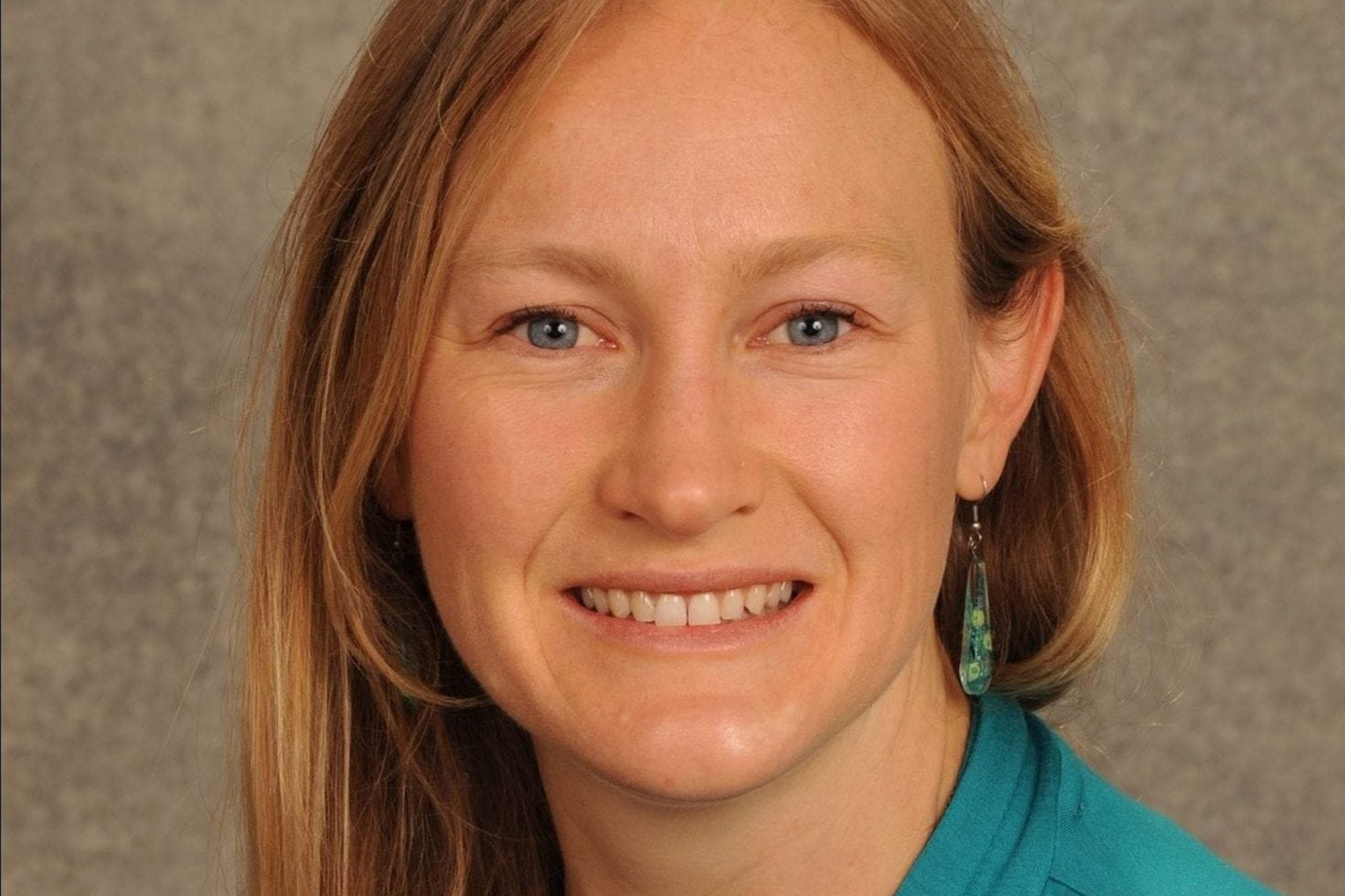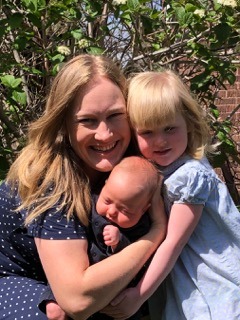
It just so happened that the day that the University of Colorado closed down its labs, including Dr. Emily Bates’, she was in labor giving birth to her second child. “I was having conversations with my students about what we needed to do from the hospital bed,” she says. “My husband could not join me for the birth of our son. Our daughter couldn’t meet her brother at the hospital. As soon as it looked like our son and I were healthy, we were sent home.”
Needless to say, the research in Bates’ lab where she is an Associate Professor in the Department of Pediatrics, (Developmental Biology) at the University of Colorado School of Medicine, slowed considerably. “We have not had the opportunity to bring new undergraduate and high school interns into the lab this summer like we usually do, but we have continued to work with one high school student and one undergraduate doing some data analysis from home this summer.” The lab currently hosts four graduate students as part of the team, but only two people are allowed in the lab at a time.”
At the University of Utah the ACCESS program was key to her success, providing her a cohort of women who were friends and study partners. Established in 1991, ACCESS, a College of Science program now in its 30th year, provides freshmen and transfer students, from a variety of backgrounds, with a scholarship and a supportive path into STEM degrees and careers. For Bates, the program encouraged, she says, “role models to normalize being a woman in science.”
While a scholarship and the rigorous undergraduate research program were main factors in her selection of the School of Biological Sciences, she recalls how fortunate she was to get the right research mentor. That mentor was Dr. Anthea Letsou in Human Genetics on the University Health campus. “I learned how to test a hypothesis from her, how to use flies to learn about developmental signaling, and how to read a scientific paper.” Perhaps equal to the actual science, Bates learned how to present her research to others. Letsou, she says, “had more confidence in my potential as a scientist than anyone I had met. It was because of her encouragement that I applied to top tier graduate schools.” The whole experience—of the research mentor coupled with ACCESS—gave her confidence and “really jump started my career.”

It takes a combination of targeted programs, mentoring and true grit on the part of every student to succeed as Bates did at U Biology. Along the way, she ran cross country for the U her freshman year before turning to marathons (She’s run 18 of them, including as a US representative in Kenya.) Bates credits the unique environment at the U which converged for her, facilitating her graduation in 1997 with a BS and her acceptance to Harvard University for graduate school where she earned her PhD. Returning to Utah, she taught at Brigham Young University for four years before accepting her current position at Colorado.
That was, of course, before COVID-19 reared its head and certainly changed the vector of how she is pursuing her career in pediatrics. She advises students to find a research opportunity with a good mentor and “stick with it,” even during the pandemic. There are skills that can be acquired “at home,” she continues, “that would be useful in labs as soon as they open. For example, learning to critically read a scientific paper, or write programs (in Matlab, R, or Python) to interpret data would be useful in a lot of labs right now.”
In the meantime, she and her family are settling in on the other side of the Rockies from Salt Lake City until a “new normal” makes its appearance. “Luckily,” she says of that singular time in the hospital virtually alone and delivering a child, “my mom had flown in before everything shut down, so she could help us for the first couple of weeks. But other family members have not felt safe flying to visit and meet the newest addition.
“Personally, that has been the hardest part of this pandemic.”
You can read about the history of the ACCESS program here.
